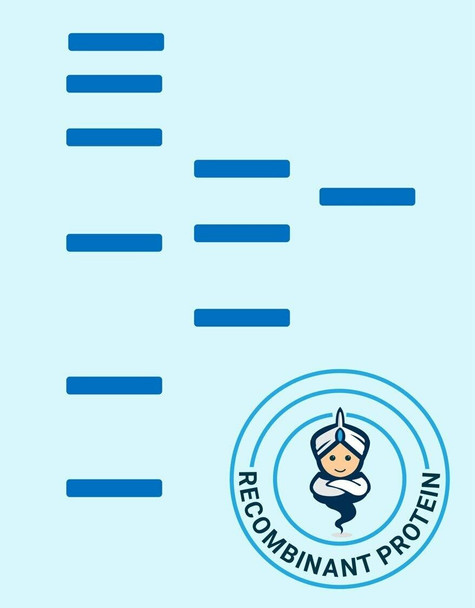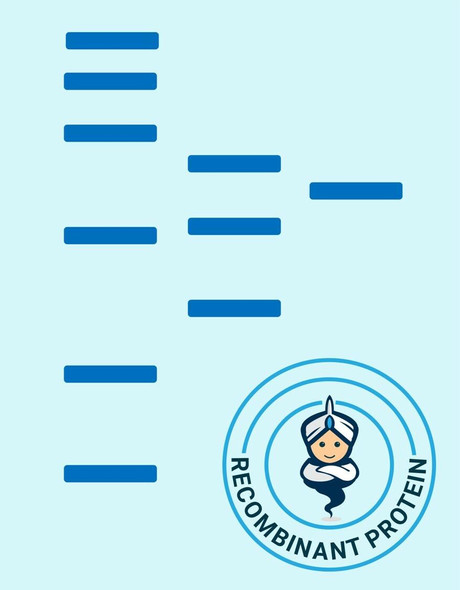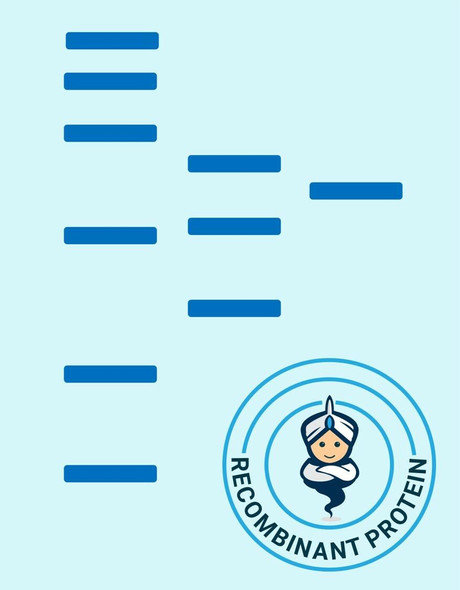Human SerpinB3/SCCA1 Recombinant Protein (RPES1610)
- SKU:
- RPES1610
- Product type:
- Recombinant Protein
- Host species:
- Human Cells
- Reactivity:
- Human
Frequently bought together:
Description
system_update_alt데이터시트
Human SerpinB3/SCCA1 Recombinant Protein
Serpin B3, also known as squamous cell carcinoma antigen-1 (SCCA-1), is a member of the serpin superfamily of serine protease inhibitors. Serpin B3 belongs to the subgroup ovalbumin-related serpins which are involved in the regulation of apoptosis, inflammation, angiogenesis and embryogenesis. It may act as a papain-like cysteine protease inhibitor to modulate the host immune response against tumor cells. It also functions as an inhibitor of UV-induced apoptosis via suppression of the activity of c-Jun NH(2)-terminal kinase (JNK1).
| Product Name: | Human SerpinB3/SCCA1 Recombinant Protein (RPES1610) |
| Product Code: | RPES1610 |
| Size: | 10µg |
| Species: | Human |
| Expressed Host: | Human Cells |
| Synonyms: | Serpin B3, Protein T4-A, Squamous cell carcinoma antigen 1, SCCA-1,serine (or cysteine) proteinase inhibitor, clade B (ovalbumin), member 3, serpin peptidase inhibitor, clade B (ovalbumin), member 3, Squamous cell carcinoma antigen 1,T4-A,SCCA1,HsT1196,SCC,SCCA-1,SCCA-PD |
| Accession: | AAB20405.1 |
| Sequence: | Met 1-Pro390 |
| Fusion tag: | C-6His |
| Endotoxin: | <1.0 EU per µg as determined by the LAL method. |
| Protein Construction: | Recombinant Human Serine Protease Inhibitor-clade B3 is produced by our Mammalian expression system and the target gene encoding Met1-Pro390 is expressed with a 6His tag at the C-terminus. |
| Purity: | > 95 % as determined by reducing SDS-PAGE. |
| Mol Mass: | 46.0 kDa |
| AP Mol Mass: | 41-50 kDa |
| Formulation: | Lyophilized from a 0.2 µm filtered solution of PBS, pH7.4. |
| Shipping: | This product is provided as lyophilized powder which is shipped with ice packs. |
| Stability and Storage: | Lyophilized proteins are stable for up to 12 months when stored at -20 to -80°C. Reconstituted protein solution can be stored at 4-8°C for 2-7 days. Aliquots of reconstituted samples are stable at < -20°C for 3 months. |










